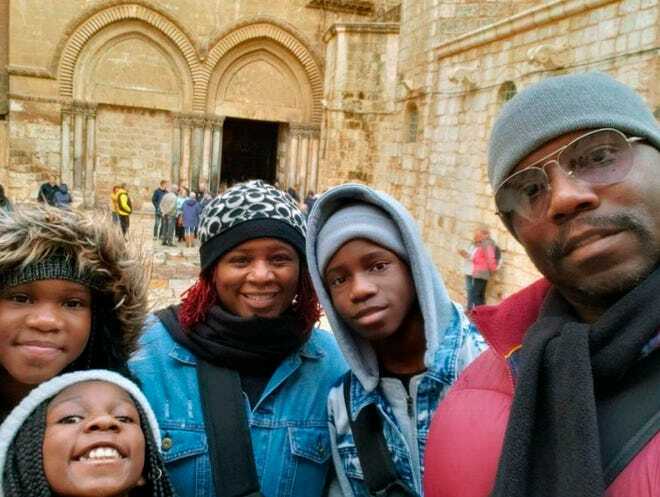Leanne Italie, Associated Press Click the image for original article at USA Today

In RVs, rental homes and five-star resorts, families untethered by the constraints of physical classrooms for their kids have turned the new school year into an extended summer vacation, some lured by the ailing hotel industry catering to parents with remote learners through “roadschooling” amenities.
With the coronavirus pandemic ongoing, the change of scene for desperate work- and school-from-home families boils down to “risk versus reward,” said Amanda Poses, a travel consultant and mother of two teenagers in Austin, Texas. “God willing, we don't have the opportunity to do this again.”
Poses and her husband let 13-year-old Addison attend school from Park City, Utah, for three days of a five-night stay in early September. In search of a flight of three hours or less, they rode horses, hiked and zip-lined. They went tubing and enjoyed an alpine slide. And, yes, there was a bit of logging in to school.
“I ended up skipping like half of my classes,” Addison smiled. “It was nice. It was like a new start.”
Addison's 16-year-old brother sat out the trip. “He was concerned about being distracted,” mom said.
One of the places the family stayed, the luxury Montage Deer Valley mountain resort, now offers “Montage Academy” for distance learners, complete with an all-day monitored “study hall” and access to virtual tutors. Other hotels are offering on-site tutors and tickets for “field trips” at area attractions.
Anna Khazenzon, a data and learning scientist for the online study platform Quizlet, said the monotony of weeks stuck at home for school on top of six months of pandemic restrictions risks bringing on burnout for distance learners.
But there are dangers lurking in schoolcations, as well.
“Formal schoolcation programs have the potential to create further achievement gaps between high- and low-income families, and more cost-effective versions should be developed, but overall there are many learning benefits for taking children on schoolcations,” Khazenzon said. “If students are burnt out and under-stimulated studying at home, then they may not be engaged in class at all.”
Jennifer Steele, an associate professor of education at American University, said that if distance learners don't show up for class during schoolcations, “we would expect them to lose some knowledge and skills.” In addition, she said, the idea “exposes socioeconomic inequities in terms of people's inability to leave and go to difference places."
Since the start of the pandemic, families of means have decamped to second homes or taken long-term rentals in vacation spots around the world. With summer over, schoolcations offer others similar experiences, whether they're roughing it on the road for extended periods or spending on hotels and resorts trying to make up for a summer slump.
For Jayson and Tammy Brown, schoolcations for their three kids have been both ongoing and life-affirming over the past five years. The parents and 11-year-old Jayde, 13-year-old Jay'Elle and 14-year-old Jayson are used to traveling the world with school topics in mind, but the pandemic has them avoiding planes.
Before the pandemic, there was a trip to Israel at a time Jay'Elle was studying the Mideast. Young Jayson made science connections between rock formations there and bioluminescent organisms he saw on another adventure.
In South Africa, the family focused on Nelson Mandela, visiting the former prison and military fort Constitution Hill, which has been turned into a history museum on the country's journey to democracy.
The Browns have taken a few road trips within driving distance of home in Atlanta since March, and have more planned. Tammy, a special education teacher, is handling her students remotely. She and her husband make sure their kids log on to school when attendance is required.
“Oh we stay on them for sure,” dad said.
What do the kids think they're gaining?
“I find it much more fun than school, being able to experience firsthand what I'm actually learning in class,” Jay'Elle said.